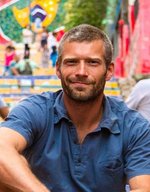
The avoidance of pain is one of the most central evolutionary principles, yet, humans routinely engage in social activities that involve suffering, pain and potential injury. All known cultures around the world have some form of social activity that involves unpleasant experiences and pain, be it in the context of sports, public initiation rites or religious ceremonies. Clinical research has focused on the negative aspects of pain experiences (e.g., chronic pain), but we do not know much about why people voluntarily seek out pain and what kinds of benefits and costs such experiences may have for individuals and groups. My research program aims to answer to what extent and through what mechanisms pain experiences may have positive outcomes for individuals and groups. I will use a multi-method design to tackle these questions, following individuals and groups as they engage in these activities in their natural environment as well as conducting controlled laboratory experiments to understand the underlying cognitive and psychological processes. It is the first comprehensive investigation of pain seeking processes in non-clinical settings and will open up novel areas for future social, psychological, clinical and biological research.
Project title:
Why seek pain? An exploration of motivations and outcomes of seeking painful experiences in social settings
Area of research:
Psychology
Fellowship period:
1 Feb 2015 – 31 Jul 2016
Fellowship type:
AIAS-COFUND Marie Skłodowska-Curie fellow

This fellowship has received funding from the European Union’s Seventh Framework Programme for research, technological development and demonstration under the Marie Skłodowska-Curie grant agreement No 609033 and The Aarhus University Research Foundation.
